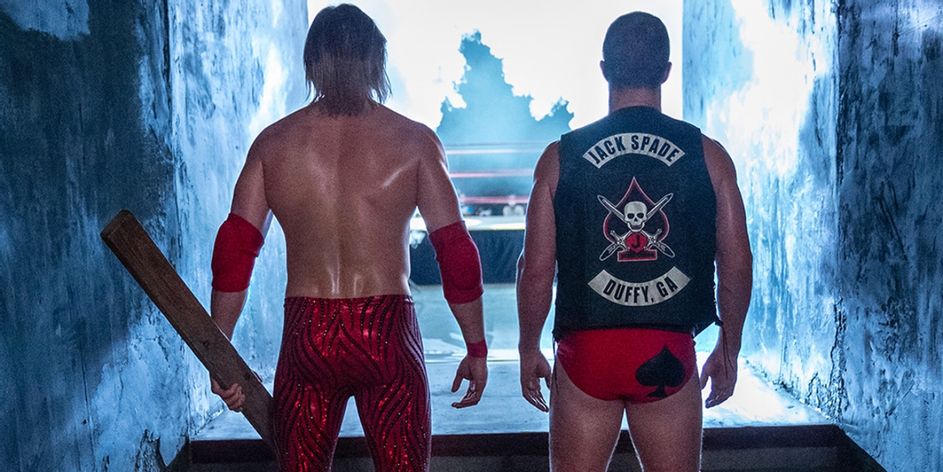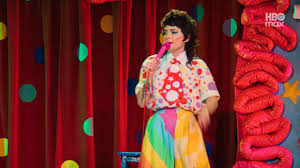Heels Review 2021 Tv Show Series Cast Crew Online
Creator: Michael Waldron
Stars: Alexander Ludwig, Stephen Amell, Alison Luff
Late in the first episode of Heels, Jack Spade (Stephen Amell) tries to convince one of the wrestlers in his employ to turn heel — i.e., start playing the bad guy. The wrestler is reluctant; he doesn’t want to be booed by the crowd.
Jack is ready with a response. “People are gonna boo you for a little bit because they see themselves in you,” he acknowledges. “They see somebody who made a mistake, and is trying to get it right.” But, Jack promises, “Eventually, you’re gonna turn back. People need to believe that we can be better, that we can fix ourselves.” Heels is the story of people who keep making mistakes but who also keep trying to fix themselves, over and over, with gripping and poignant results.
The series’ most obvious forerunner is Friday Night Lights, down to the plaintive indie rock soundtrack. Like that show, Heels is set in a small town obsessed with a specific sport — in this case, indie pro wrestling in Georgia. Also like that show, Heels welcomes viewers of all knowledge levels; there’s enough explanation woven into the dialogue to guarantee that even total newbies won’t get lost in the terminology. Above all, Heels shares a sense of empathy that it extends to all the characters in its orbit. But if Friday Night Lights was exemplified by the nigh-saintly Coach Taylor, Heels is the scrappier younger brother: edgier, messier, a bit rougher around the edges, but lovable in its own way.
At the core of the Starz drama are Jack and his brother, Ace (Alexander Ludwig), the rising star of the struggling Duffy Wrestling League, which Jack has inherited from their late father. Where Jack plays heel, snarling into the mic during matches, Ace is the “face” (good guy), basking in the glow of the crowd’s adoration. Initially, the central irony of the series seems to be that Jack is the better guy in real life: He’s a responsible family man, whereas Ace is a conceited man-child. By the end of its first episode, though, Heels has made a point of rejecting such easy categorizations. Outside the ring, these characters aren’t heels or faces. They’re neither, or both, or something else altogether, depending on the context. Heels shifts that context with every new plot development or backstory reveal, and it’s to the cast’s credit that they’re able to change gears in such subtle but unmistakable ways.
It does take longer than it should for the non-Spade characters of Heels to attract that level of attention (and some, like a frustrated Black wrestler played with scene-stealing brio by Allen Maldonado, never quite do). The focus on Jack and Ace in the early installments means that some of the other major storylines feel like they’re just stumbling out of the gate midway through the eight-episode season, and it’s not until the series’ final hours that it even becomes apparent Heels is supposed to be more of an ensemble drama. But the series rewards patience. The second half of the season is richer than the first in every way, as characters like Wild Bill (Chris Bauer), an obnoxious DWL alum who made it big, or Willie (Mary McCormack), Jack’s business partner, reveal surprising new depths. A slow-burn arc involving Crystal (a winning Kelli Berglund), Ace’s sort-of love interest in and out of the ring, turns out to be one of the most satisfying of the entire season.
The series may be steeped in the specifics of wrestling, but it’s also essentially a show about making a show, so perhaps it’s not surprising that it has a tendency toward heavy-handed meta commentary. It’s not enough for Jack and Ace to be brothers at odds. A character has to compare them to Cain and Abel and then explain who Cain and Abel are, for the benefit of viewers who might not know. (A different character later compares them to a CW drama, which is less flattering but works as a cute little nod to Amell’s Arrow fandom.) Sometimes the habit feels defensive. I could complain about Crystal being sidelined for as long as she is, or I could rewind a couple of episodes to hear Jack explain to a disgruntled wrestler that he’s gotta wait for the belt until it’s right for the story.
That grandiosity never completely disappears, and perhaps it shouldn’t, as the Spades’ story seems to become more compelling the more tragic new dimensions it takes on. But not for nothing, Heels grows more relaxed as it goes. It chills out enough by episode six to make room in its one-hour run time for a scene of DWL wrestlers just sitting around and wondering about the point of male nipples. From a plot perspective, it’s almost entirely pointless. But it’s also one of the funniest and most disarming moments of the entire season, and does more to illustrate the camaraderie within the DWL than any pre-match pep talk from Jack ever could.
It also serves to reinforce the greater point Heels is trying to make underneath all its gut-punching turns (some literal — as directed by Peter Segal, the matches look both impossibly elegant and painfully brutal). Heels starts as a family saga with an especially juicy hook: Take a long-simmering dispute, complicate it with kayfabe, and let the participants go at it in the ring. But its compassion feels too big to limit to a single family, and the show improves as it expands its scope. Throughout Heels, Jack agonizes over his scripts, trying to figure out how to make the audience care about his characters enough to come back for the next event. Heels itself, thankfully, is already there.




